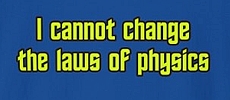"Doctors have reported a surge in cases of ‘digital dementia’ among
young people.
"They say that teenagers have become so reliant on digital technology
they are no longer able to remember everyday details such as their phone
numbers. South Korean experts have found that those who rely more on
technology suffer a deterioration in cognitive abilities more commonly
seen in patients who have suffered a head injury or psychiatric illness."
Digital dementia?
Oh, please.
My daughter had problems reading analog clocks because she grew up
surrounded with digital displays. I don't remember the phone numbers of
the friends and business associates I've acquired since the advent of
smartphones.
But- I remember the phone number of my mother, my kids, my family
doctor, the local drug store. I remember my Pennsylvania drivers'
license number.
We remember what we need to remember: what's important.
Brains are pretty smart. They learn things. They organically know there
are limits to memory and, therefore, store and discard data based upon
its importance and accessibility.
While I'm not as fanatical as some who have adopted his system, I agree
with David Allen's Getting
Things Done approach, which pretty much boils down to the rule: get
stuff out of your brain and written down somewhere.
I have a daily to-do list in Microsoft Outlook that contains 30 tasks
that need to be completed every day by 10 am. Some make fun of me for
doing this, or say I need to simplify my life- but simplifying my life
in a way that somehow still addresses their needs.
In any event, I've found that on days when I've neglected the list, I've
forgotten at least three or four items on it- taking medication, making
certain my cellphone is charged, reminding someone else of something they
need to do that will affect me down the line.
A long time ago I realized that I didn't have to know everything, I just
needed to know where to look. With the advent of Google and online
search engines, the statement needs some modification: I don't need to
know everything, I just need to know how to look. I learned how
to phrase questions and build inquiries, so that my online searches
return the precise information for which I'm looking, not pages and
pages of irrelevant references.
Albert Einstein said, "A new type of thinking is essential if mankind is
to survive and move toward higher levels." Should I develop the part of
my brain that stores telephone numbers, or the part that stores
knowledge about using systems that store far more information than I
could ever possibly stuff into that fat-based, hormone-soaked chunk of
wetwear between my ears?
And where did I leave my cellphone?
(Original
article.)
Categories:
KGB Opinion
Home
KGB on Bluesky
KGB on Substack
KGB Stuff
Commentwear
E-Mail KGB
Donate via PayPal
Older entries, Archives and Categories
Top of page


















